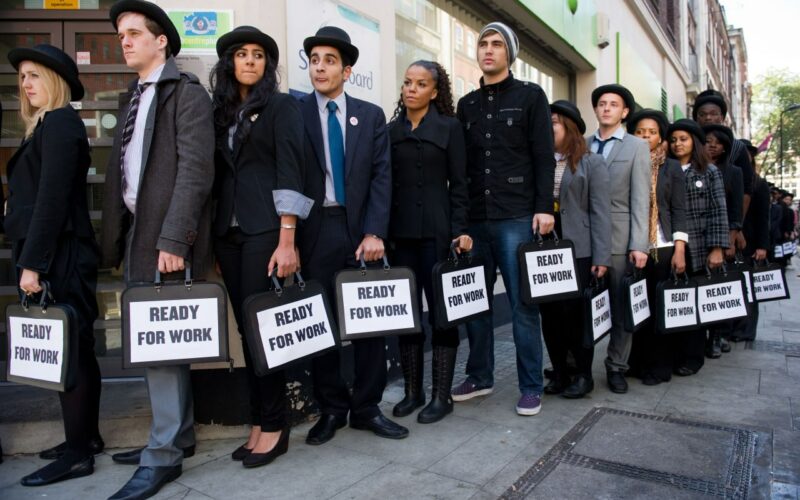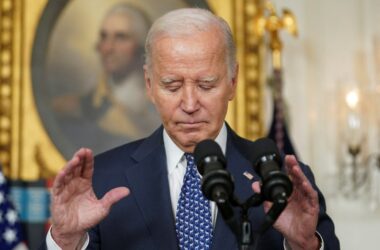UK unemployment has reached its highest level in nearly three years, while wage growth remains robust, as the country heads into a pivotal general election.
New data from the Office for National Statistics (ONS) shows that the unemployment rate between February and April climbed to 4.4%, marking the highest level since September 2021. This unexpected increase, up from 4.3% in the previous quarter, contrasts with economists’ predictions of a steady rate, adding complexity to the ongoing election discourse where economic issues are prominent.
At the same time, wage growth continues to outpace inflation, complicating the economic landscape. Annual wage growth excluding bonuses held steady at 6% during the three-month period from February to April, while growth including bonuses was 5.9%. These figures remain well above the current inflation rate.
The rise in unemployment and sustained wage growth have led to mixed views among analysts regarding potential changes in the Bank of England’s (BoE) monetary policy. The robust wage growth may dampen the likelihood of an imminent interest rate cut, despite recent rate cuts in the euro area.
Richard Carter, head of fixed interest research at Quilter Cheviot, commented, “The BoE will be incredibly cautious to cut rates at a period when spending power is high for consumers and potentially triggering a fresh inflationary bout. As such, today’s data will continue to put a dampener on a rate cut in June or August, with November remaining the likeliest date to see that first fall.”
Market predictions align with this cautious stance, showing little expectation of a rate cut in the BoE’s June meeting and a modest probability for August. The likelihood increases to nearly 60% for the September session.
Capital Economics, a consultancy, suggested that while persistent wage growth remains a concern for the BoE, rising unemployment could soon lead to a downward trend in wage inflation. “Wage growth may not stop the Bank from cutting interest rates for the first time in August, as we are forecasting, as long as other indicators such as pay settlements data and next week’s CPI inflation release show decent progress,” noted Ruth Gregory, the deputy chief U.K. economist at Capital.
The data release occurs against the backdrop of a heated general election campaign, where economic performance is a central issue. Prime Minister Rishi Sunak and Labour leader Keir Starmer are both emphasizing economic growth, cost of living, and tax policies in their campaign strategies, with the ruling Conservative Party facing a strong challenge from Labour.
The election outcome could significantly impact future economic policies, including decisions on interest rates, spending, and taxation, as both parties propose distinct approaches to managing the UK economy.








